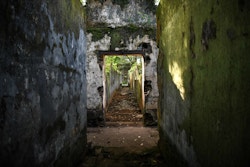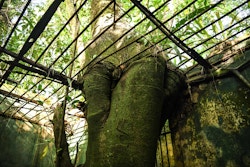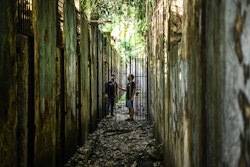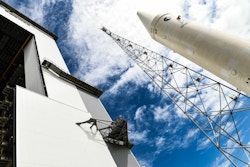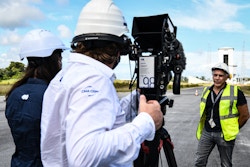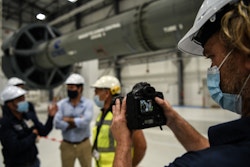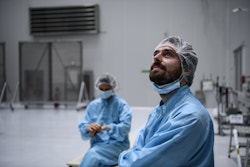Kourou, French Guiana
Our crew stops in Kourou to discover the Guiana Space Center, and learn more about its energy architecture and the space missions dedicated to the observation and preservation of natural ecosystems.
Coming from: Saint-Laurent-du-Maroni, French Guiana
Weather conditions: Rain
Time of arrival: 10:00 AM
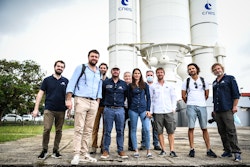
Our crew at the Guiana Space Center
After a navigation of several days on the Maroni in the heart of the Guyanese forest, our crew sets sail for Kourou.
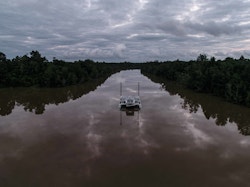
Energy Observer on the Maroni River
The Salvation's Islands
On the road to Kourou, we stopped at the Salvation’s Islands, known in particular for their prison where tens of thousands of prisoners were sent. A place abandoned since 1947 where nature seems to have taken back its rights.
The archipelago is today the property of CNES and the Guiana Space Center due to its strategic location under the trajectory of rocket launchers.
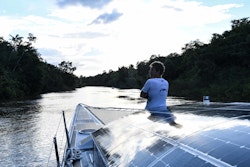
Early bird on the Maroni
At the heart of a European space base
Once in Kourou, we went to a major scientific site: the Guiana Space Center, directed by CNES.
Before arriving on the launch site, also called the launch pad, it is in the "clean room" that the satellites sent from the Guiana Space Center are prepared. In order to enter it, suits and protections are mandatory, in order to limit the introduction of external particles, to which the satellites may be sensitive.
Our goal is to learn more about the use of hydrogen for space, but also to discover the energy functioning of the Guiana base and the missions aimed at observing and preserving ecosystems.
The origins of hydrogen
More than 50 years ago, rockets were the first vehicles to run on hydrogen! Hydrogen has allowed mankind to travel in space, and to realize how unique our planet is. On land, hydrogen is today the key to an energy transition that respects nature and mankind. This is the story we wanted to tell in this video, the culmination of our stay in French Guiana.
